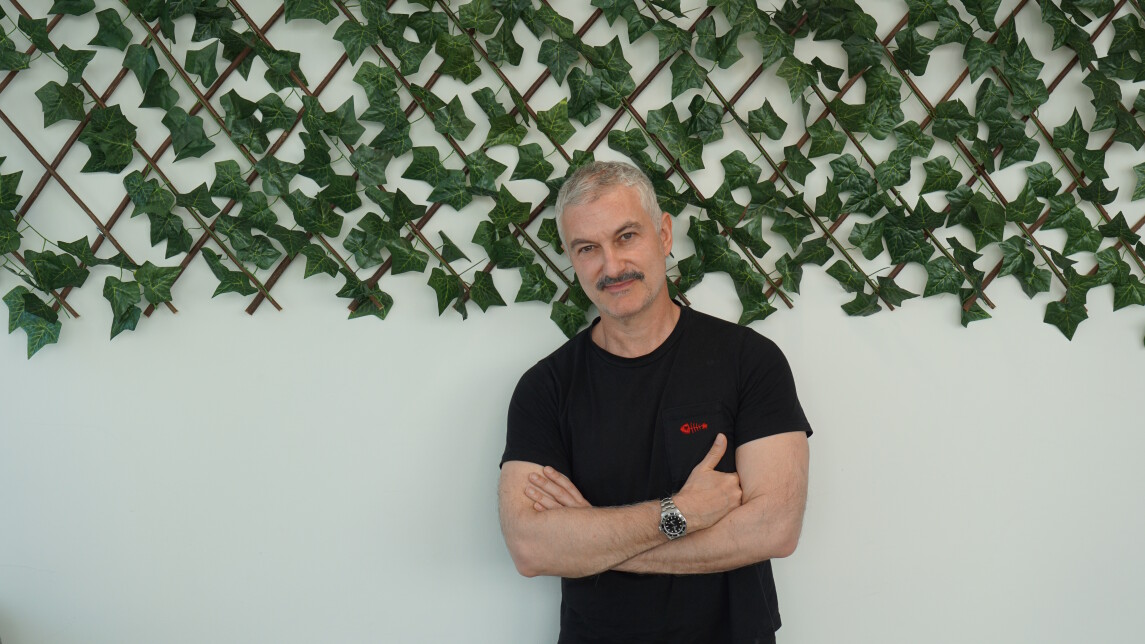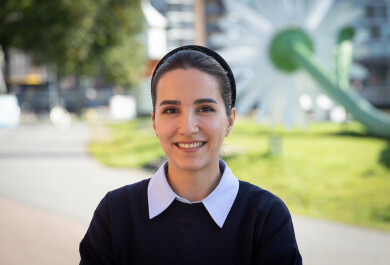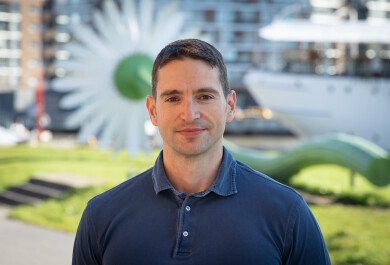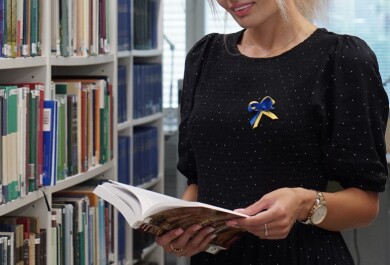Professor Andreas Philippopoulos-Mihalopoulos from the University of Westminster visited the Faculty of Law in May. During the visit, he gave a lecture and organize a participative performance at the Faculty. The visit also extended to the island of Seili in the wake of Law, Space and Justice project.
Professor Andreas Philippopoulos-Mihalopoulos from the University of Westminster in London visited the University of Turku in May. He has a connection with the Faculty Law, thanks to the research collaboration with Miriam Tedeschi.
During the multi-day visit, Philippopoulos-Mihalopoulos got to know the research carried out at the Faculty. At research lunch, he shared his thoughts on legal research and teaching. During the visit, he also had time to participate on a retreat on the island of Seili, where he was invited by the Law, Space and Justice research environment.
In addition, Philippopoulos-Mihalopoulos gave an open lecture-performance in Calonia, which made legal scholars stand up from their seats.
“I had done the same performance before in New York. When preparing for a performance, I often think about the audience and the space, because the performance depends on the space in which it takes place,” says Philippopoulos-Mihalopoulos.
At the Faculty, the performance hit the right ground. According to Philippopoulos-Mihalopoulos, it is always interesting to do things outside the lecture format.
“The law staff took it really well, some of them were really game, and someone even challenged me seriously. It was unexpected,” says Philippopoulos-Mihalopoulos.
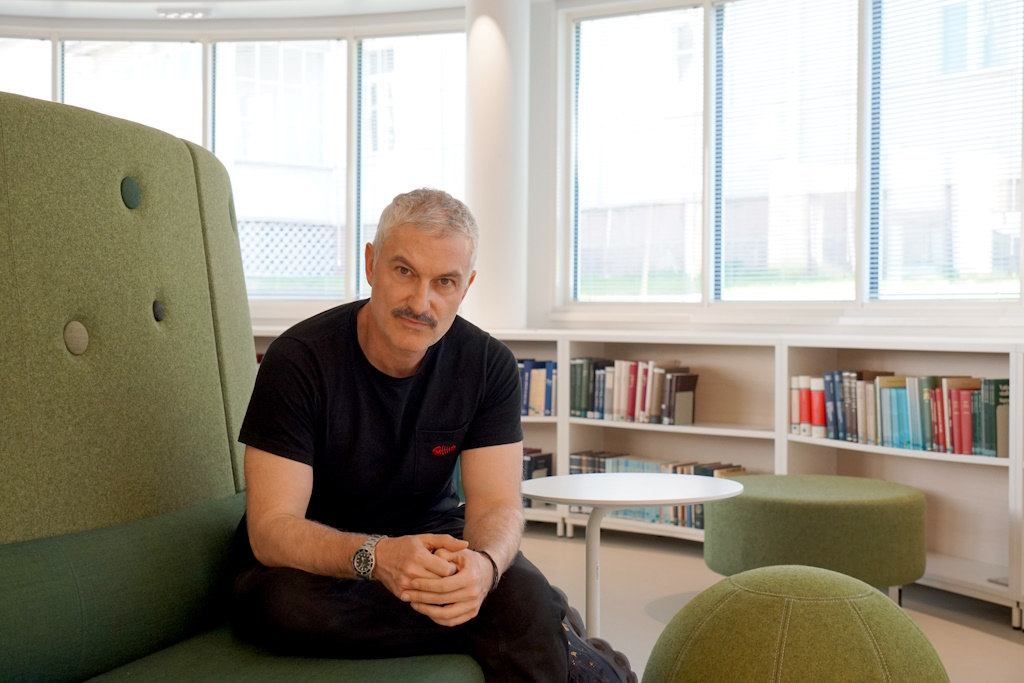
The law is nothing if not contextualized, says Philippopoulos-Mihalopoulos.
The lecture-performance was linked to the theorizations of Philippopoulos-Mihalopoulos, for which the concept of lawscape is central.
“This means that the ethical norms related to the law are intertwined with materiality, objects, bodies, and human and non-human spaces. There is no immaterial law that can apply to everyone. There is no space or body that does not play along some kind of law, whether it is by obeying, resistring, gerenrating or destroying it,” Philippopoulos-Mihalopoulos clarifies.
From myth to resistance
Philippopoulos-Mihalopoulos's thoughts rely on Spinoza's thoughts on the norms for living. He says that for practitioners of law, it depends on the frame of mind how his ideas are received.
“Some judges have found it useful to understand. It will not help you with day to day legal administration; however, the law is nothing if not contextualized, explains Philippopoulos-Mihalopoulos.
According to Philippopoulos-Mihalopoulos, people who work as barristers and solicitors know that there is no case that does not involve numerous other disciplines.
“You might need geography, photography, all of these things come into the court and become part of the practice. It is important to understand what these are about. It’s not just dealing with the law,” Philippopoulos-Mihalopoulos continues.
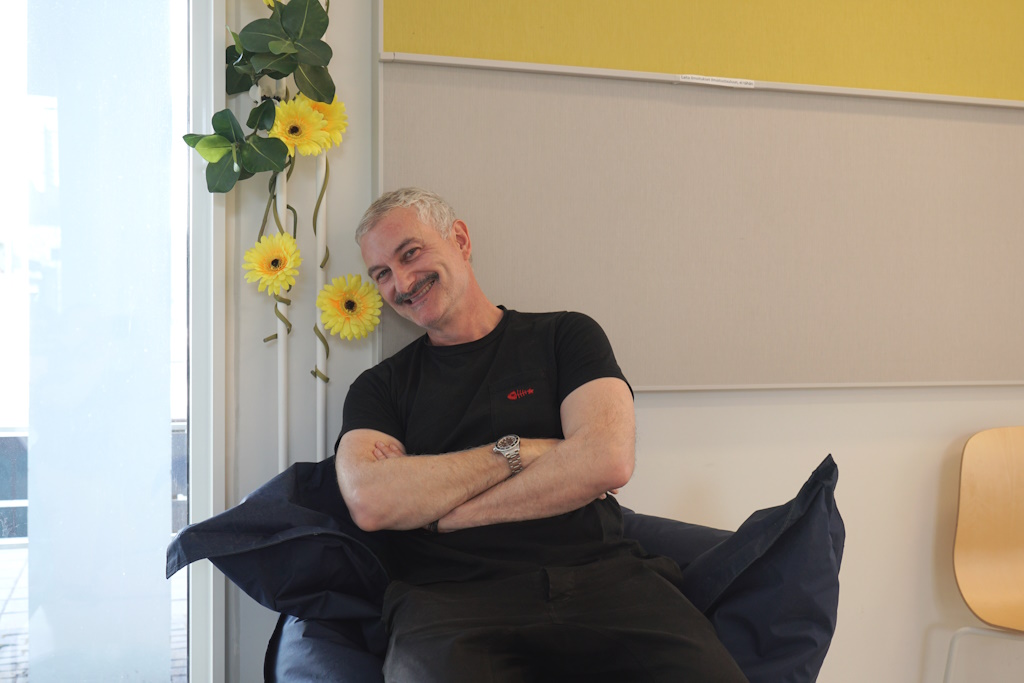
For Philippopoulos-Mihalopoulos, moments of resistance are legal moments.
In jurisprudence, there is a tendency to think of law as something reified. Philippopoulos-Mihalopoulos's approach, on the other hand, is based on banalizing the law and making it everyday. This is not about jargon but empowering the body.
“Moments of resistance are legal moments. These are moments when you resist but also take the law with your hands and push the boundaries,” states Philippopoulos-Mihalopoulos.
Philippopoulos-Mihalopoulos' methods may shock more traditional legal scholars. He sees broader thinking in the Faculty of Law.
“In this department, they have good ideas and they are doing very good things, for example in the field of environmental law, which is where I started. It first of all exposes the limitations of law. The globe has its own processes, and you are trying to regulate from your own little corner things like extinction,” Philippopoulos-Mihalopoulos says.
Testing the limits of the law by means of banalization
At the University of Westminster, Philippopoulos-Mihalopoulos is the director of the Law and Theory Lab, which he co-founded.
“It is law and theory instead of it legal theory, or philosophy of law. We wanted to emphasize the interdisciplinarity of it. We are happy to communicate with other disciplines that we can communicate with through theory,” Philippopoulos-Mihalopoulos says.
Philippopoulos-Mihalopoulos is also an artist, and he sees that art practice has similarities with law practice. Both are about expression and subjectivity, but also about politics. Some of the things done in the Law and Theory Lab are also unique globally.
“In the final year, the students work with personal tutors, and they produce artefacts that portray how they view the law. They are trying to decolonize the law. There are people in London coming from different backgrounds. It’s fascinating how they understand the law,” Philippopoulos-Mihalopoulos reflects.
The result is, among other things, installations, paintings or dance performances. Through the banalization of the law, even those who do not consider themselves artistic learn to think of themselves as creative.
During the visit, Philippopoulos-Mihalopoulos was able to apply these methods on the island of Seili, where he was taken by a research retreat of the Law, Space and Justice project.
In Philippopoulos-Mihalopoulos's own work, there are periods when either art or research takes over. He is also interested in channeling his research into his art projects. Through painting, installations and writing, he can deal with more abstract ideas.
Philippopoulos-Mihalopoulos says that there is a sentence that has been haunting him since his PhD.
"It is from Nietszche: “There is no outside! Yet we forget it; how wonderful it is that we forget!" – A better law outside. It’s important to keep thinking about this,” concludes Philippopoulos-Mihalopoulos.
> Read more about the visit to Seili
